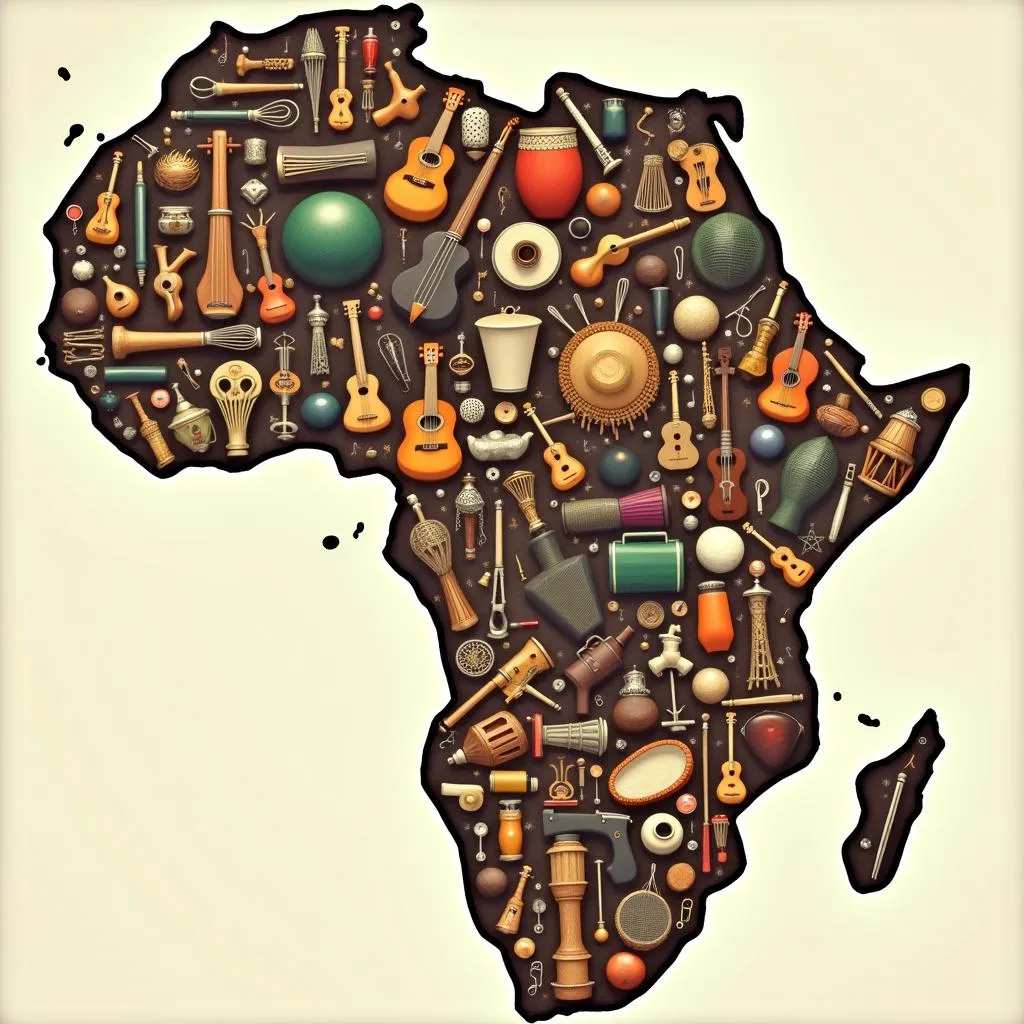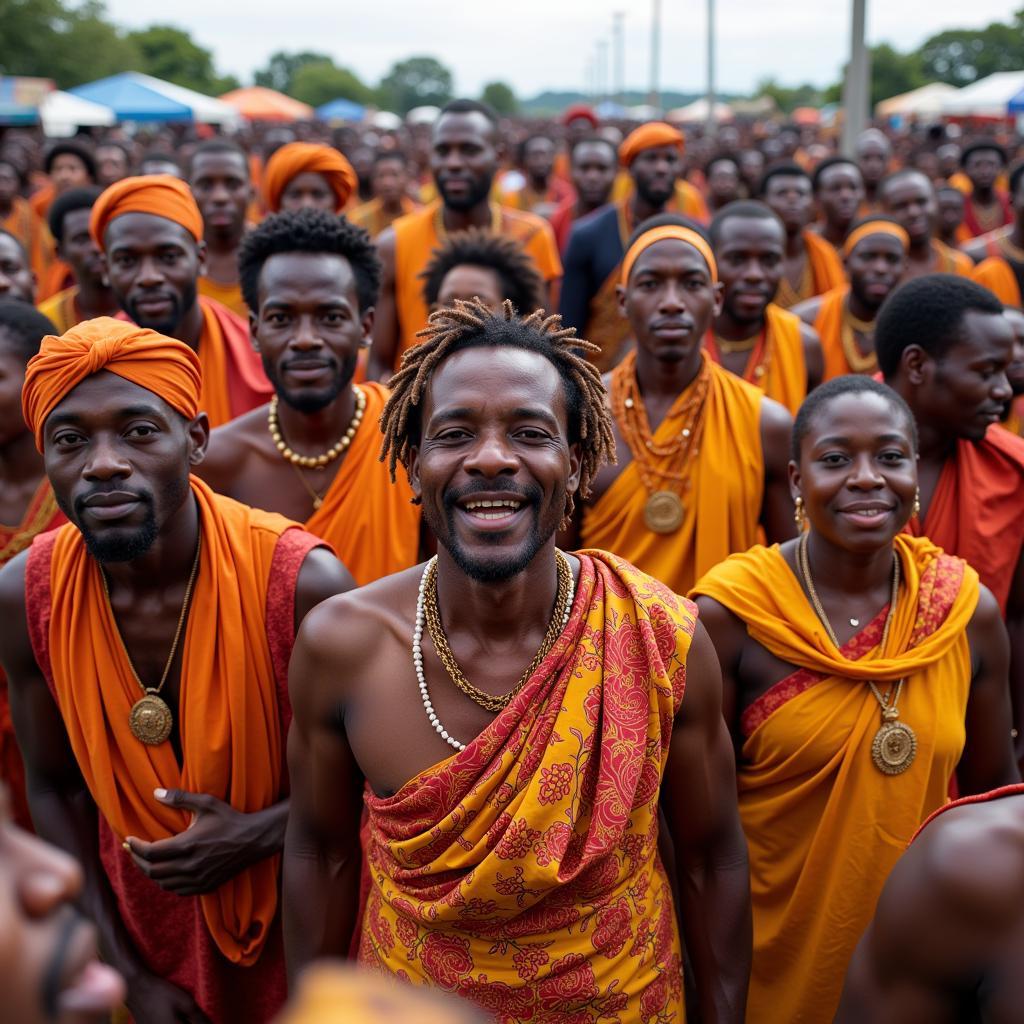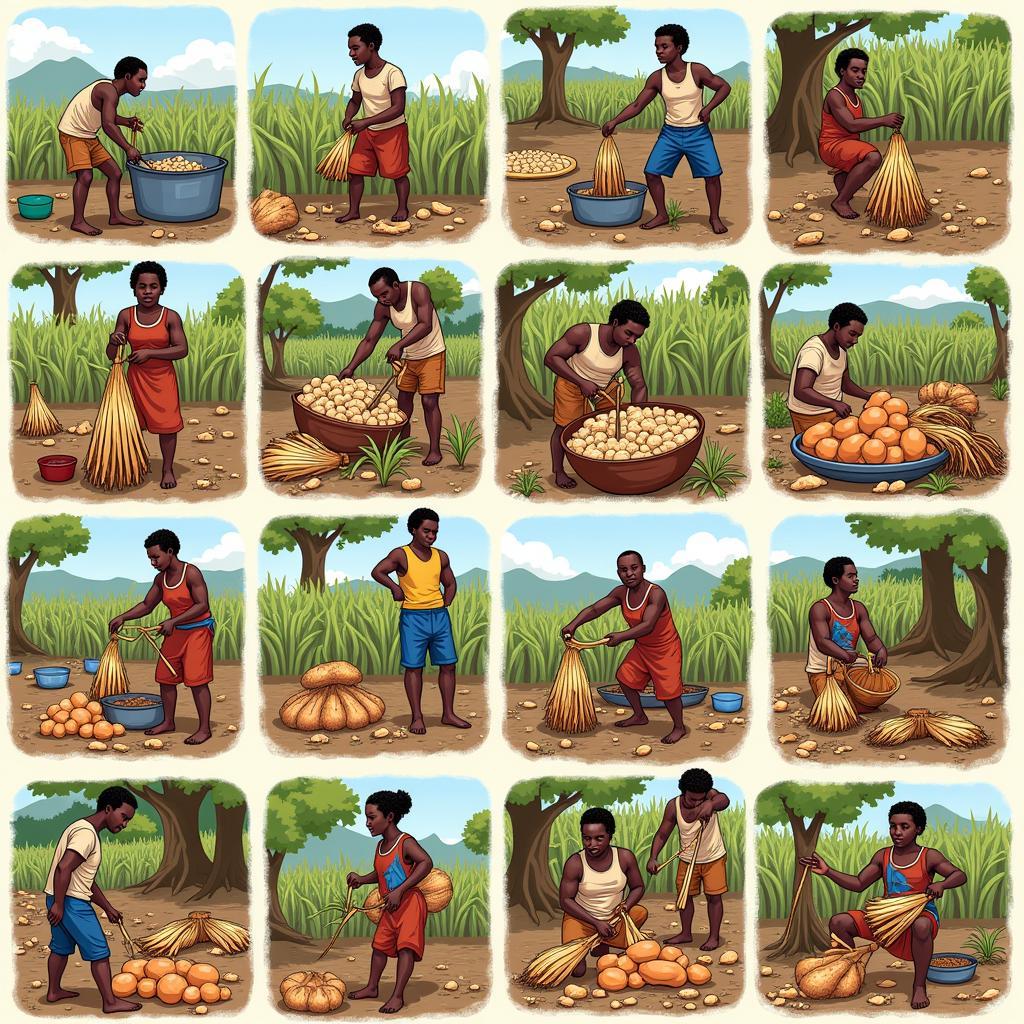Understanding the African Culture Through Music
African music is incredibly diverse and vibrant, reflecting the continent’s vast array of languages, cultures, and histories. It’s a powerful force that brings people together, tells stories, expresses emotions, and celebrates life.
Each region in Africa has its unique musical traditions, from the soulful melodies of West Africa to the rhythmic beats of South Africa. Instruments range from traditional drums and flutes to modern instruments like the guitar and keyboard.
The Role of Music in African Culture
Music plays a vital role in African culture. It’s used in ceremonies, rituals, storytelling, and everyday life. It serves as a form of entertainment, education, and social commentary.
Here are some ways music is interwoven with African culture:
- Ceremonies and Rituals: Music is crucial during important events like weddings, funerals, harvest festivals, and religious ceremonies. Each event has its specific songs and dances that symbolize the occasion and the beliefs of the community.
- Storytelling: Music acts as a powerful tool for transmitting stories and traditions through generations. The lyrics often contain historical accounts, moral lessons, and cultural values.
- Social Commentary: Music can be used to express social issues, political grievances, or personal struggles. Musicians act as a voice for the people, raising awareness about social injustices and advocating for change.
Exploring the Diversity of African Music
Africa’s musical landscape is a tapestry of diverse genres and styles:
- West African Music: Known for its complex rhythms, call-and-response patterns, and use of instruments like the kora, djembe, and balafon.
- South African Music: Famous for its energetic beats, intricate harmonies, and influences from traditional Zulu and Xhosa cultures. Genres include kwela, mbaqanga, and kwaito.
- East African Music: Characterized by its use of instruments like the tarabu, ngoma, and sira. Genres include taarab, benga, and soukous.
- North African Music: Influenced by Arabic and Islamic traditions, with a focus on vocal melodies, intricate rhythms, and instruments like the oud, qanun, and darbuka.
The Power of African Music
Beyond its cultural significance, African music has a universal appeal. It can evoke powerful emotions, inspire movements, and connect people across cultures.
The global popularity of artists like Fela Kuti, Miriam Makeba, and Salif Keita is a testament to the enduring power of African music. It’s a reminder that music transcends borders and connects us all on a deeper level.
The Future of African Music
With the rise of new technologies, African music is evolving and reaching a wider audience. Young musicians are blending traditional styles with modern influences, creating a vibrant and exciting soundscape.
The future of African music looks bright, promising a continued exploration of its rich heritage and a dynamic fusion of tradition and innovation.
 The diverse musical landscape of Africa
The diverse musical landscape of Africa
Frequently Asked Questions
Q: What are some popular African musical instruments?
A: Some popular instruments include the djembe drum (West Africa), the kora (West Africa), the balafon (West Africa), the mbira (Zimbabwe), and the tarabu (East Africa).
Q: What are some examples of contemporary African music?
A: Contemporary African music encompasses a wide range of genres, including Afrobeat, Afropop, Amapiano, and Azonto.
Q: How can I learn more about African music?
A: You can explore online resources, listen to music streaming services, attend live performances, and engage with African music communities.
Q: How has African music influenced other genres?
A: African music has had a significant impact on many global genres, including jazz, funk, soul, and hip-hop.
Q: What are some of the challenges facing African musicians?
A: Some challenges include limited access to resources, piracy, and the lack of international recognition for African music.
Q: What are some ways to support African musicians?
A: You can support African musicians by attending live performances, buying their music, sharing their work online, and advocating for their recognition.


